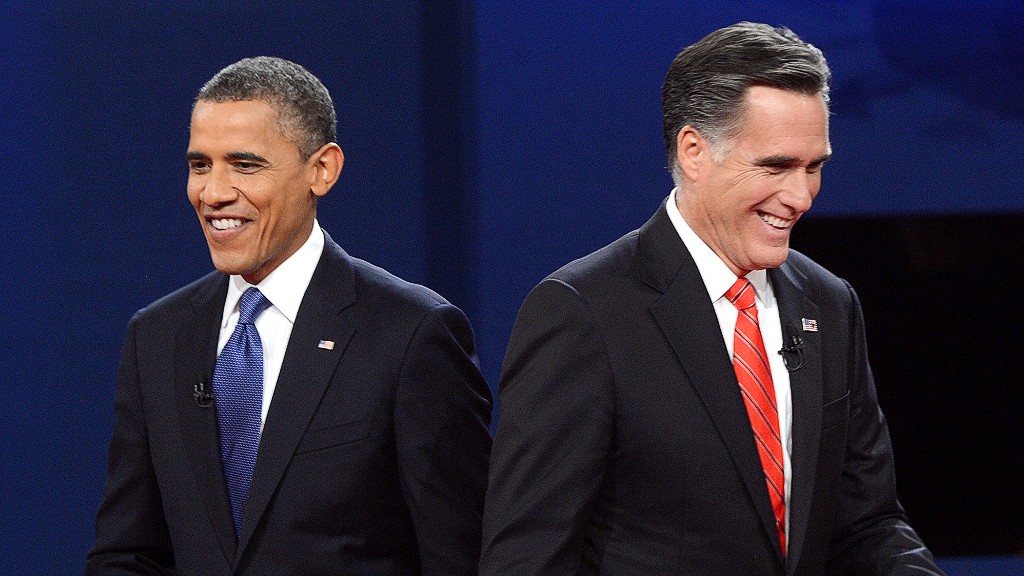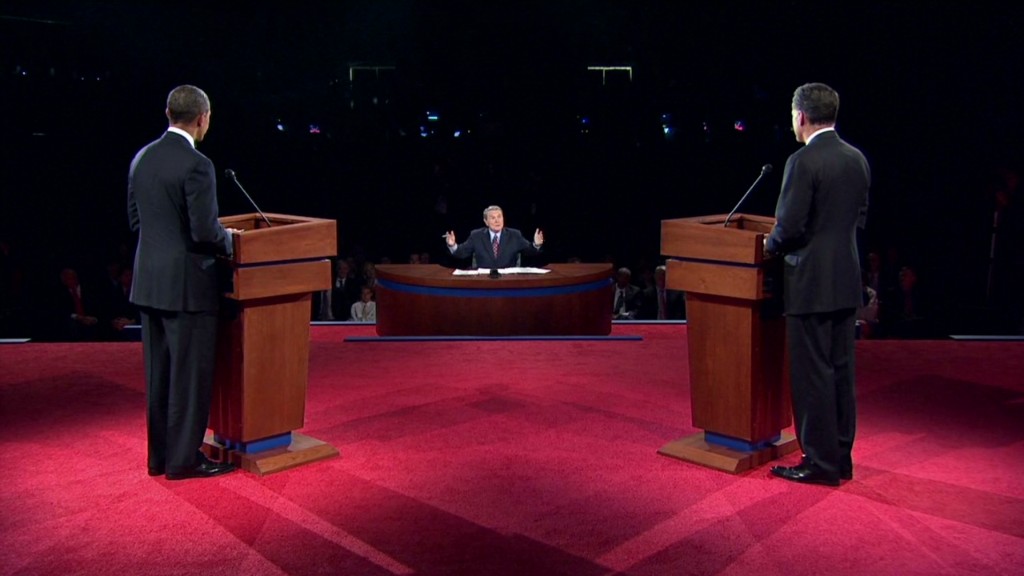
When asked directly about Social Security during their first debate, President Obama and Mitt Romney each gave a brief, detail-free answer. Then they used the rest of their time to talk about Medicare.
Granted, Medicare poses a much bigger financial problem than Social Security. But Americans rely on both programs.
And Social Security reform is likely to be part of any deficit-reduction package Congress finally agrees to, even if savings from it are not counted toward deficit reduction -- a demand many Democrats will make.
Social Security benefits paid to today's retirees are financed by current workers' payroll taxes. For years, the system collected more revenue than it paid out. But that surplus was borrowed by the Treasury Department for other needs.
Now, Social Security is taking in less money than it must pay in benefits, but it makes up the difference by tapping some of the money it's owed by Treasury. By 2033, Treasury will have paid back the program in full, at which point payroll taxes will only cover 75% of promised benefits.
Along the way, however, Treasury will be borrowing all the money it owes to the program, adding to the country's deficits.
Related: Fiscal cliff: Payroll tax cut may not survive
Social Security could be changed in myriad ways to shore up that shortfall. But any proposals are subject to partisan flame wars, which have stalled the debate for years. The longer Congress waits to make adjustments, the more abrupt and stringent the changes will have to be.
Both Obama and Romney say they don't want any changes to affect near or current retirees.
Beyond that, here's what we know of their positions on Social Security reform.
Obama: The president has said he favors making Social Security "solvent and viable" for the long run but did not include proposals for how to do so in his 2013 budget proposal.
His budget did state, however, that he is "strongly opposed" to letting workers invest part of their payroll taxes in private investment accounts.
When asked about the program during his first debate with Romney, Obama said, "it's going to have to be tweaked the way it was by Ronald Reagan and ... Democratic Speaker Tip O'Neill."
Reagan and O'Neill presided over the last reform of Social Security in 1983. That reform raised the retirement age slowly and increased the payroll tax rate, among other things.
Obama also said that his grandmother, who had worked and paid into system, "understood that there was a basic guarantee, a floor under which she could not go."
Related: Social Security benefits will get small cost of living bump
When Obama was running for president in 2008 he proposed raising payroll taxes on high-income earners. But he said he would not support increasing the retirement age or cutting benefits.
Last summer, during the debt ceiling negotiations, Obama said the framework created by the so-called Gang of Six -- a bipartisan group of senators -- was "broadly consistent" with his. That framework called on lawmakers to direct any savings from Social Security reform back into the program and not use them for deficit reduction.
Romney: The Republican nominee's economic plan states that "there are a number of options that can be pursued to keep the system solvent -- from raising the eligibility age to changing the way benefits are indexed ... for high-income retirees."
Romney has said he would add a year or two to the retirement age. And the "means testing" of benefits that he supports would slow the growth in payments for wealthier retirees.

Romney's plan also states that he would not consider raising the payroll tax or increasing the amount of wages -- currently $110,100 -- subject to that tax.
"Tax hikes are off the table, and there will be no change for those at or near retirement. But younger generations will enter a system strengthened for the 21st century," Romney said in February.
While he has said repeatedly those near retirement wouldn't be affected by changes, it's not clear what age he means. In the January debate he said it was 55. In his latest debate with Obama, he said 60.
Romney has not said much recently about whether he supports individual investment accounts tied to Social Security. In his 2010 book, "No Apology," he advocated for voluntary "add-on" accounts in which workers could choose to contribute 1% of their wages to their own account. Workers who didn't want such an account would have to actively opt out.





